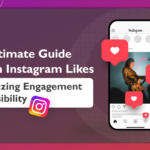NFTs are becoming ever-more popular, with the industry rapidly expanding from a niche technology with a limited following to a mainstream sensation that has transfixed and confused wider society in equal measure.
Although this is a spectacular rise, it is somewhat unsurprising once you start to study both philosophy and the mechanics of non-fungible tokens more closely. This is a technology that could expand into countless different markets and change the way that people interact with brands, artists and the entire digital world forever.
To fully comprehend the potential of NFTs, it is crucial to understand what makes them popular in the first place.
This is what you need to know about NFTs and why they have become increasingly popular:
What are NFTs?
When first learning about NFTs, everything from their name to the noise surrounding them is enough to confuse you, so it is best to start with the basics.
An NFT is a cryptographic non-fungible token. This means that each NFT is provably unique and cannot be directly traded with any other asset. It is like trying to exchange a Monet painting for a painting by another artist – the two are simply not comparable.
What makes NFTs so useful is their encryption. Every NFT has a bespoke ‘DNA’ which the owner can use to categorically prove that their asset is unique. This has never been achieved before. Even the Monet would have to be examined by a professional, who could always be deceived by a forger.
In essence, an NFT is a digital file which contains these unequivocal property rights. Anyone can technically access the property itself if it is made public (whether it is a Beeple image or a video), but only the owner can prove it is theirs.
To embark on your journey down the NFT rabbit hole, visit okx.com.
NFTs can be a lucrative trade
One of the primary reasons why retail investors are pouring into the NFT space is because the market has strengthened considerably in recent years, with several NFTs selling comfortably for seven figures.
Naturally, in a market that is ripe with growth and opportunity, there are countless people buying and selling NFTs in the hope of generating a profit.
This logic extends to the business world too, with several dedicated NFT brands springing up to cater for this increased footfall.
NFTs are transforming various industries
Whether it is famous musicians selling the intellectual property rights to songs or special concert tickets, artists selling their finest pieces or fashion brands creating digital designer clothes, it is difficult to find a mainstream industry that hasn’t been influenced by NFTs in one way or another.
These various use cases for NFTs have driven an explosion in popularity, as fans are introduced to a fascinating new way to interact with their favorite brands, celebrities or organizations.
NFTs promote self-ownership
A compelling benefit of NFT technology is its championing of self-ownership.
The current economic structure favors central ownership, in the form of large corporations who own the lion’s share of everything from your favorite sports clubs to the rights to your favorite singers’ hits.
This is particularly apparent in the creative arts, which only enables a tiny percentage of artists to make a living from their talent.
With NFTs, these property rights are put back in the hands of the original creator, making global markets more of a meritocracy.














